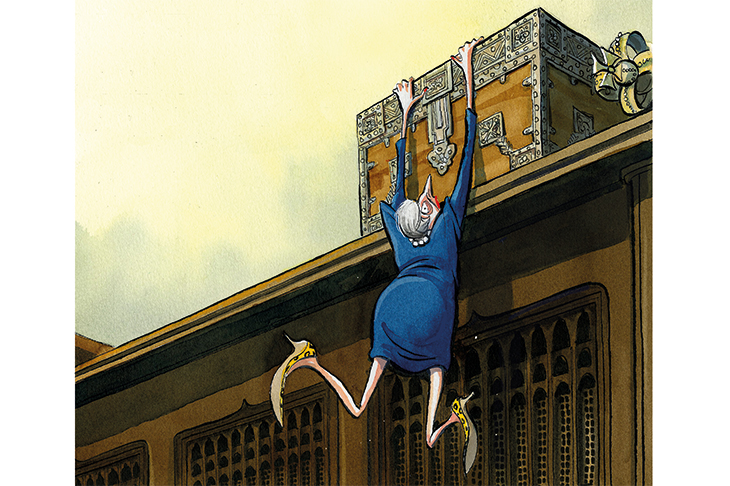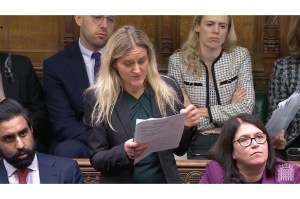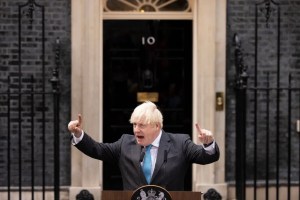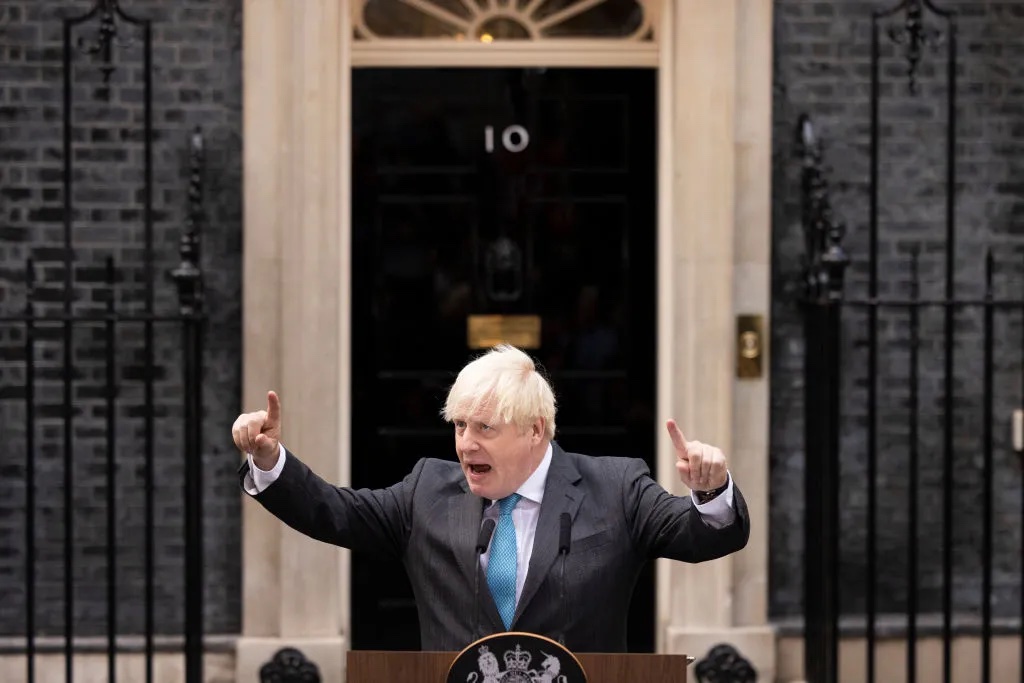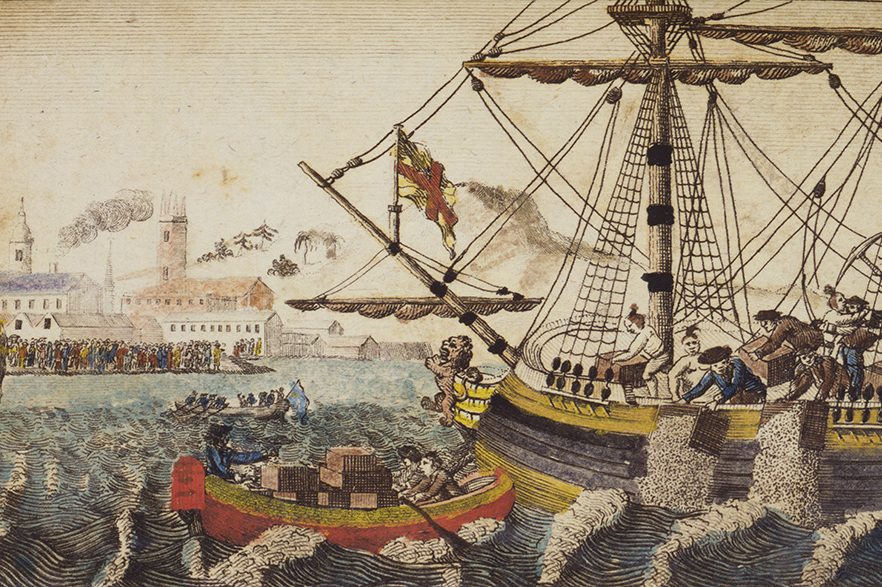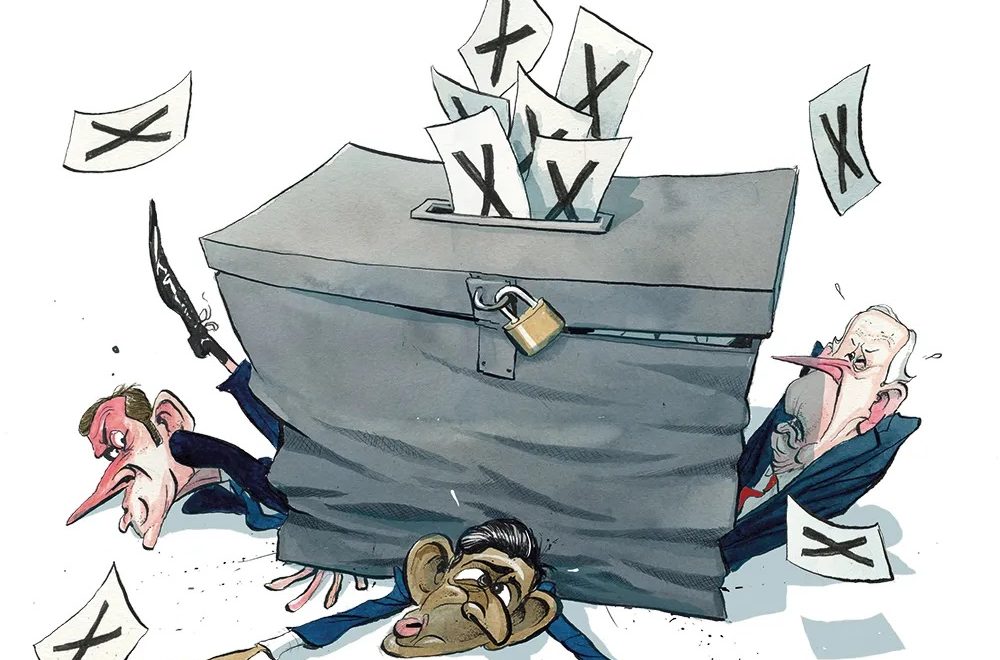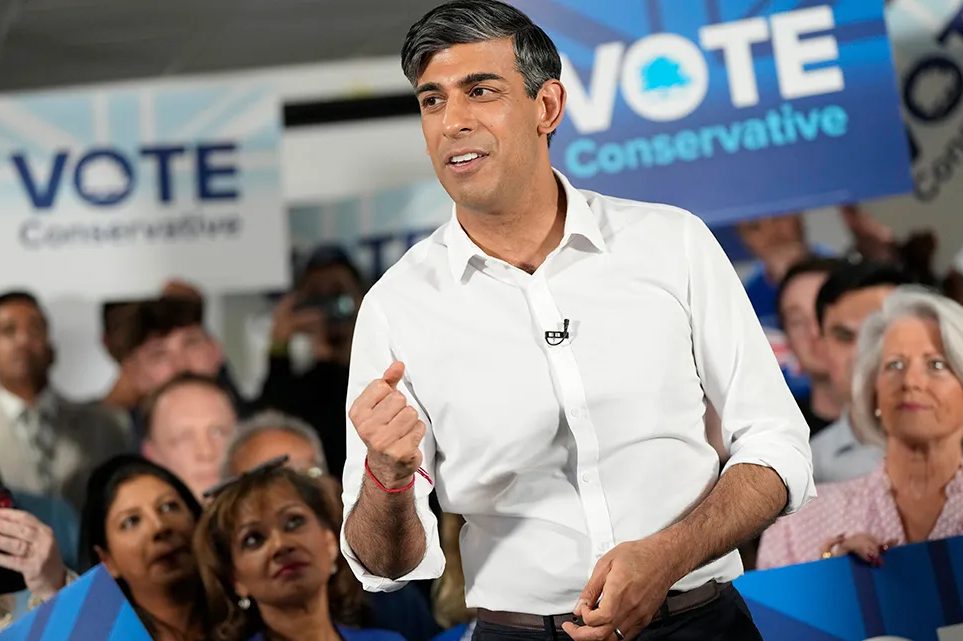Unless Theresa May delays the vote, December 11 2018 might be about to become one of the most important in recent British history; more important even than June 23 2016. If Members of Parliament vote down Theresa May’s withdrawal agreement, as nearly all ministers expect them to, they will set Britain on course for either the softest possible Brexit or a second referendum. In the process, they may well split the Tory party.
Theresa May’s strategy has been to play chicken with Parliament. Her team saw virtue in intransigence and calculated that at the last moment MPs would get out of her way. They thought that fear of no deal would bring former Remainers into the fold. Simultaneously, Leavers would reluctantly take this imperfect Brexit over the risk of no Brexit at all.
So far, this plan isn’t working. Both sides think that voting down May’s deal makes it more likely that they’ll get what they want, whether it be no deal or a second referendum. ‘If you want your optimal outcome, the deal is not going to deliver it,’ one minister observes ruefully. Part of the problem, as one Tory MP explains, is that MPs can hear everything May says. So when she tries to warn Remainers of the risk of leaving without a deal, the ears of the Brexit ultras prick up. They then discount her warnings about how rejecting her deal would lead to a second vote — and vice versa.
The other problems are with the deal itself. The backstop is problematic not just in relation to Northern Ireland, but also because there is no simple way for the UK to leave it. This makes it hard for pragmatists to argue that you can accept this Brexit and then fix it later. There are valid arguments about why the EU would not want the backstop to persist — it allows goods to circulate more freely than people — but Emmanuel Macron’s threat to keep the UK in the backstop if it doesn’t give way on fishing has made it nigh-on impossible to make this case. By making the backstop sound like the EU’s version of the naughty step, Macron has made it far more difficult for Mrs May to sell her deal.
The other challenge that Mrs May faces is that, in the words of one cabinet minister, ‘all trust is gone’. The Brexit process has burned through her political capital: she promised one kind of Brexit and then offered up another — while claiming that nothing had changed. Her assurances are now devalued, which in part explains why Parliament demanded to see her private legal advice on her Brexit deal. MPs simply don’t trust the government to give an honest summary of the situation (especially given that it so badly misjudged the implications of last December’s joint report).
May’s next problem is that both sides are convinced they can get what they want by voting down her deal. The ERG, the main Brexit lobby in the Tory party, points out that if the withdrawal agreement is voted down then this country leaves without a deal unless something is put in its place. They are convinced that they could defeat any alternative, or any leader who proposed one. At the same time, those who want to remain in the EU think the prize is now in their grasp: that if the deal is voted down, Parliament will be paralyzed so MPs will have to order another referendum. This is no longer just the hope of those with a very strong ideological or emotional commitment to the EU — as was demonstrated by the resignation of Sam Gyimah, an ambitious man of government type.
There are ways to sell Mrs May’s deal. But as several cabinet ministers have bemoaned to me this week, the Prime Minister can’t do it. She is not a natural saleswoman, and it is hard for her to admit (as its other proponents do) that this deal is preferable to the alternatives but still deeply flawed. And this is the case because the preparations for no deal have been a scandalous failure. One reason why Britain is so vulnerable to the Dover-Calais crossing becoming seized up is that the government has made almost no effort to build up alternative routes. A more competent administration would have built up other ports facing Belgium and Holland.
Even now, with no deal a distinct possibility, No. 10 is dragging its feet. Those inside believe that four months of intense preparation are needed to give the country a chance of managing no deal. But No. 10 wants to hold off on a decision about whether to make no-deal planning the main priority of government until after the meaningful vote on 11 December. Yet the UK is to leave the EU on March 29. This delay is irresponsible. It also makes it unthinkable that the Commons would support a no-deal solution. This has been a sordid victory for those inside government who undermined meaningful no-deal preparations on the grounds that it would give the Brexiteers a contingency plan they might use.
Thanks to Dominic Grieve’s maneuvering, Parliament has now granted itself the power to amend May’s deal if it is voted down the first time, so MPs can foist a solution upon her. It won’t be legally binding. But it is hard to imagine that a government refusing to implement what MPs wanted could command the confidence of the House. Many of the Tories who voted for the Grieve amendment did so because they want to move to ‘Norway plus’ if May’s deal is defeated. This would see Britain accept the withdrawal agreement and stay in the single market via the European Economic Area and a temporary customs union with the EU. The UK would be out of the European political project, the common agricultural policy and the common fisheries policy. But we would remain in the single market, a customs union, and would keep freedom of movement. It would be a Charmin-soft Brexit.
It is hard to imagine Theresa May pulling off this pivot, because she has defined the referendum result as being about border control. ‘Norway plus’ is anathema to a great many Tories and would have to be passed on the back of a very large number of Labour votes. It wouldn’t be seen as much of a Brexit by most Tory voters.
So if May wants her deal passed, and Parliament won’t support it, her only option would be to ask the people. A three–question referendum that offered voters a choice between May’s deal, Remain and no deal would have something for everyone on the Tory side. To adapt Harold Wilson, it might provide a lifeboat into which the whole party could clamber. But at the moment there is strikingly little Tory support for this idea. Most Tories cannot think beyond how divisive a second referendum would be. Even cabinet ministers who voted Remain first time round are fearful of what the electoral consequences would be for the Tories if Remain were to win in a second referendum.
Some Tories hoping for a cleaner Brexit think that they still have a chance: that May can be replaced by someone who quickly ramps up no-deal planning. After the Grieve amendment was passed, one cabinet minister told me, ‘The Brexiteers are itching for a leadership contest. They think that this is their way through this.’ This hardball approach would be popular with grassroots Tories and the party’s voters. But a leader elected on this platform would struggle to hold the parliamentary party together.
If May’s deal is defeated, we’ll enter the most uncertain period in recent British political history. Anything could happen. There is even growing talk of Parliament rescinding Article 50 without a referendum.
As May tries to save her deal, it seems unlikely there will be any last-minute EU concession that she can unveil on the morning of the vote. Her last best hope comes from a previous prime minister who led a minority government when Europe and Northern Ireland dominated the agenda. She must pray that Harold Wilson was right — that a week is a long time in politics.
This article was originally published in The Spectator magazine.



